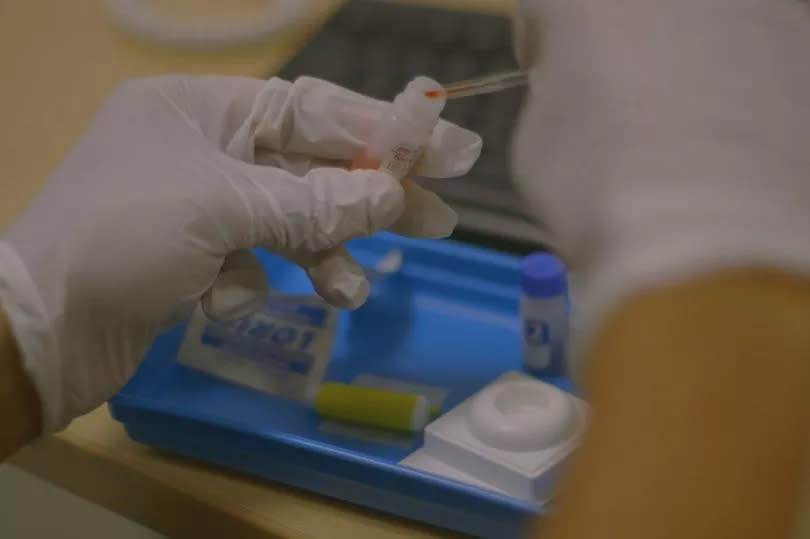A record number of people were diagnosed with gonorrhea last year; Sexual health services are at a “critical point” due to funding cuts and rising demand, health officials have warned. There were more cases of this ancient sexually transmitted infection in England last year than at any time since records began more than 100 years ago, according to the latest NHS data.
Gonorrhea infections, mentioned in the Bible and ancient Greek and Roman writings, increased from 79,268 diagnoses in 2022 to 85,223 in 2023, an increase of 7.5%. pandemic, only to return to record levels.
Gonorrhea diagnoses are now three times what they were in 2012. At the same time, the infection rate, used to measure the risk of contracting a disease, has tripled from 50.3 infections per 100,000 of the population in 2012 to 149 infections per 100,000 last year. This is the equivalent of around one in 670 people in England being diagnosed with gonorrhea.
TO READ: British tourists bring back disease that could kill 1 in 10 people, Foreign Office warns
But in some parts of the country, particularly London, the risk is much greater. There were 4,101 diagnoses of gonorrhea in Lambeth last year. Compared to the population size, this equates to 1,295 infections per 100,000 people; This is equivalent to approximately one in 77 people suffering from gonorrhea.
All 15 areas with the highest infection rate were in London. Lambeth was followed by Southwark (983 per 100,000), then Hackney (867 per 100,000). Outside the capital, the risk of contracting gonorrhea was highest in Liverpool (302 infections per 100,000 people) and Brighton (292 per 100,000 people).
Using our interactive map, you can see gonorrhea cases and rates where you live and how this has changed over the past decade.
It comes as the British Association for Sexual Health and HIV (BASHH) warned that sexual health services face increasing demands for care “in a challenging environment of financial cuts and workforce pressures”. The number of consultations provided by sexual health services in England reached a record 4.61 million in 2023; This was up 5% from the previous year and up 44% since 2019, the earliest available year of records.
BASHH has now called on the “new government” to implement a national sexual health strategy to tackle the challenges and deliver “high quality care that meets growing and changing demand and ends health inequalities”. Professor Matt Phillips, chair of BASHH, said: “We find ourselves at a critical point in ensuring the sustainability of sexual health services.
“The alarming trend of new STI diagnoses is a sign of growing unmet needs for those requiring sexual health care, especially those living in minority communities and those who prefer in-person services, and is a long-awaited and much-needed strategy for sexual health.
“From recruitment challenges to public health funding to ensuring every clinic is supported by the right specialists, the next government has the opportunity to turn the tide and remove these barriers to ensure everyone has timely access to expertise to support good sexual health and wellbeing.”

The origins of gonorrhea can be traced back to Biblical times, and mentions of this sexual infection can be found in the earliest records of the human race. This disease is thought to be mentioned several times in the Bible, particularly in the Old Testament Book of Leviticus; this book warns: “The man who gives seed shall be unclean.”
Romans, Jews, and Arabs all have documentation of gonorrhea, and each society has its own unique descriptions of symptoms and treatments. It is recorded that Pasiphae, the wife of King Minos of Crete, used a goat’s bladder as a condom because the king’s semen was said to contain “scorpions and snakes” that killed his mistresses.
The name of the disease is almost as old as its definitions. It is thought to have been invented around 130 AD by the Roman physician Galen, who described gonorrhea as “the involuntary leakage of semen.” Formerly known as “clap,” symptoms of gonorrhea include dark green or yellow discharge from the vagina or penis, pain during urination, and bleeding between menstrual periods in women.
It is normally transmitted through unprotected sexual intercourse or, in some cases, sharing of sex toys, but it can also be passed from a pregnant woman to her baby. If left untreated, complications can include pelvic inflammatory disease, ectopic pregnancy, and female infertility; and can cause scrotal swelling, urethral stricture (which can make urination painful and lead to infection), and infertility in men.
If left untreated, gonorrhea can cause permanent blindness.